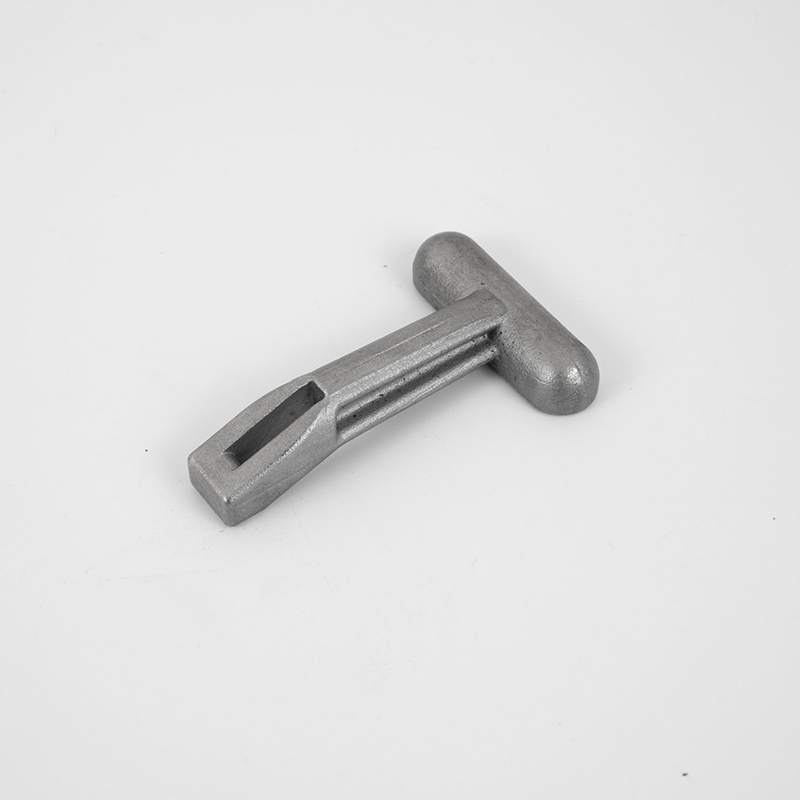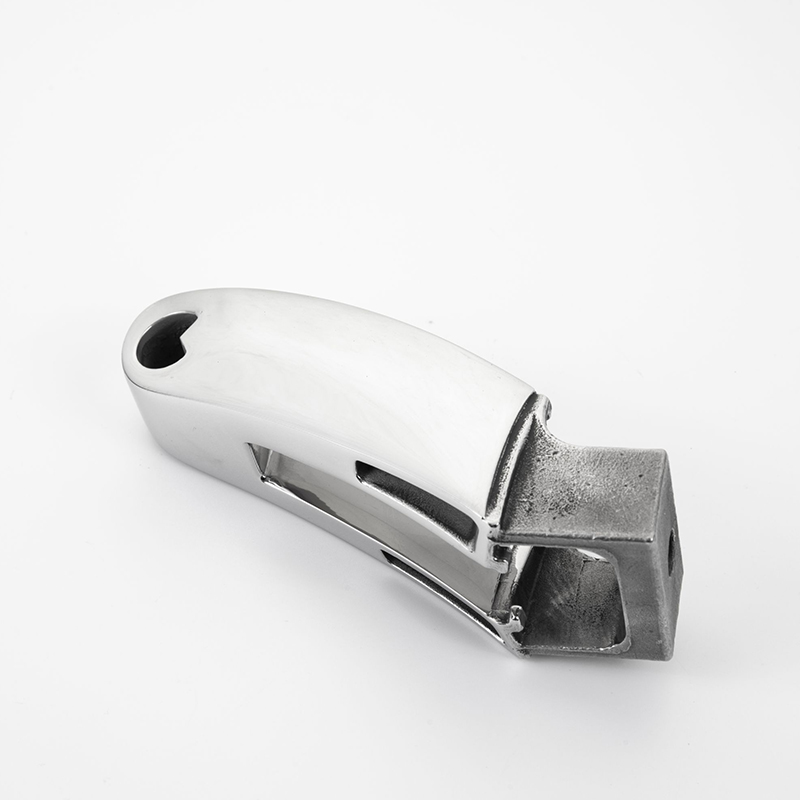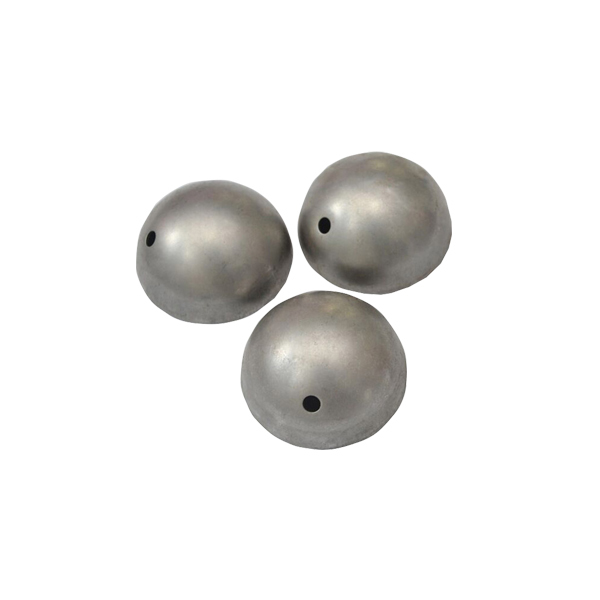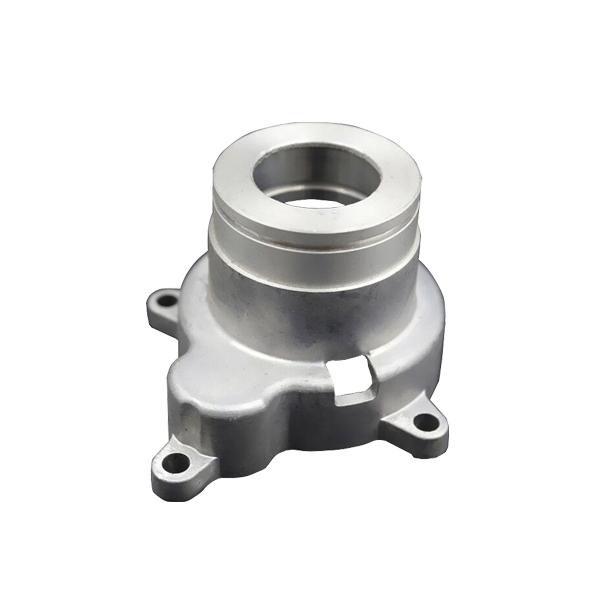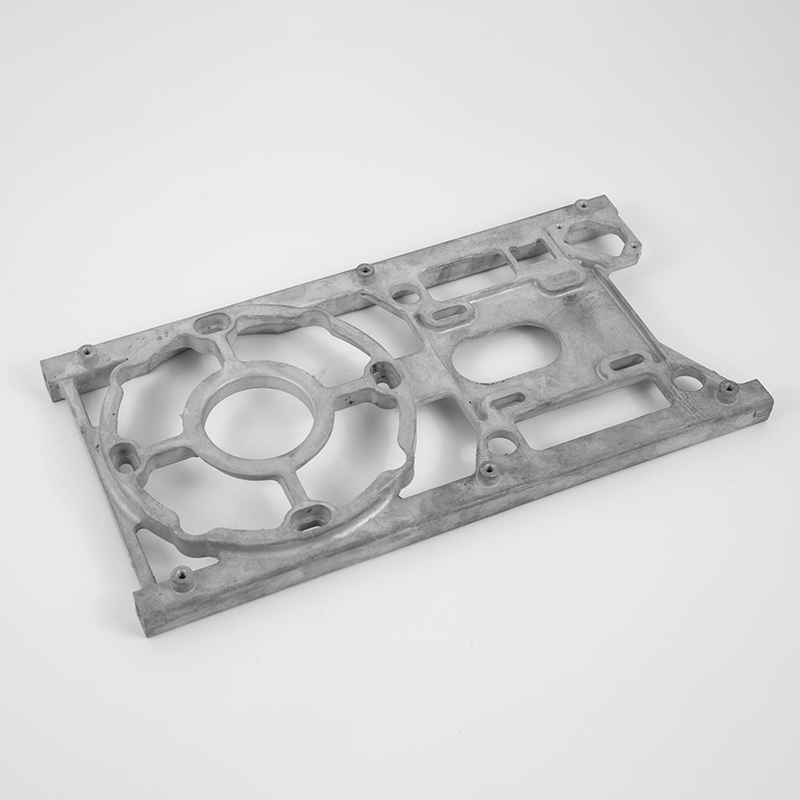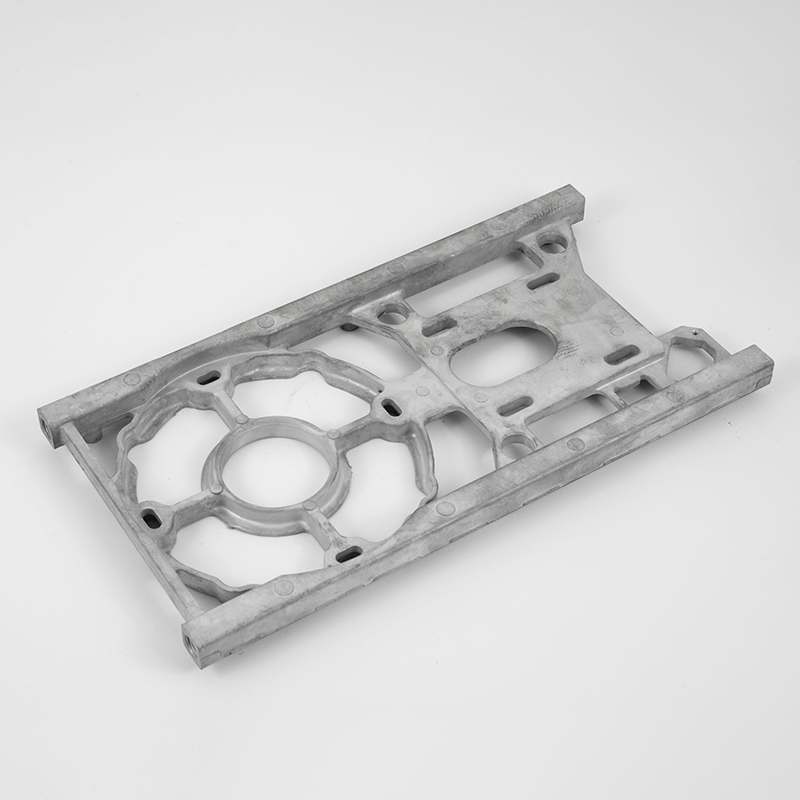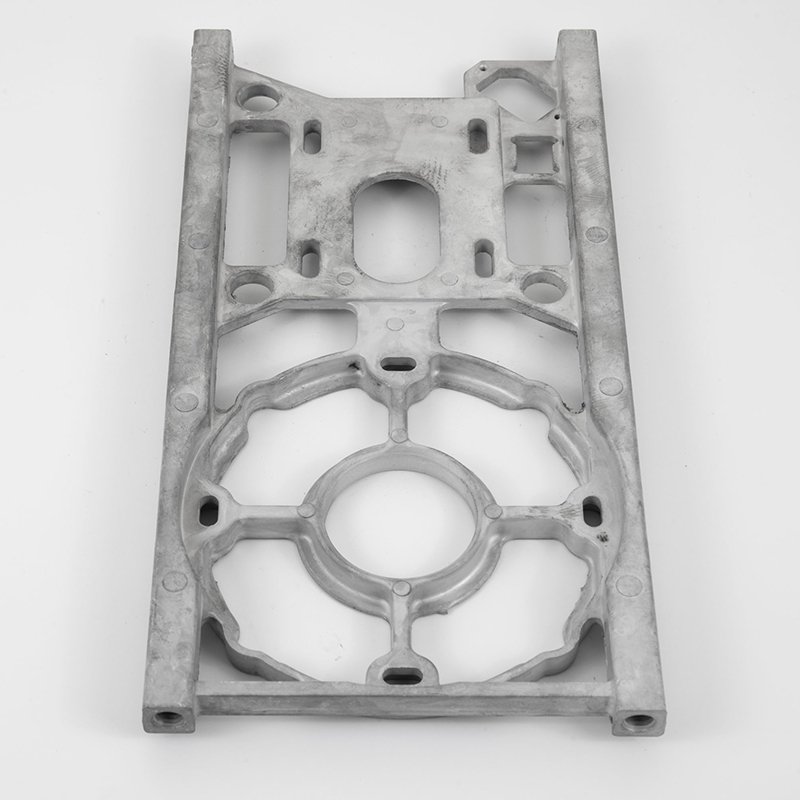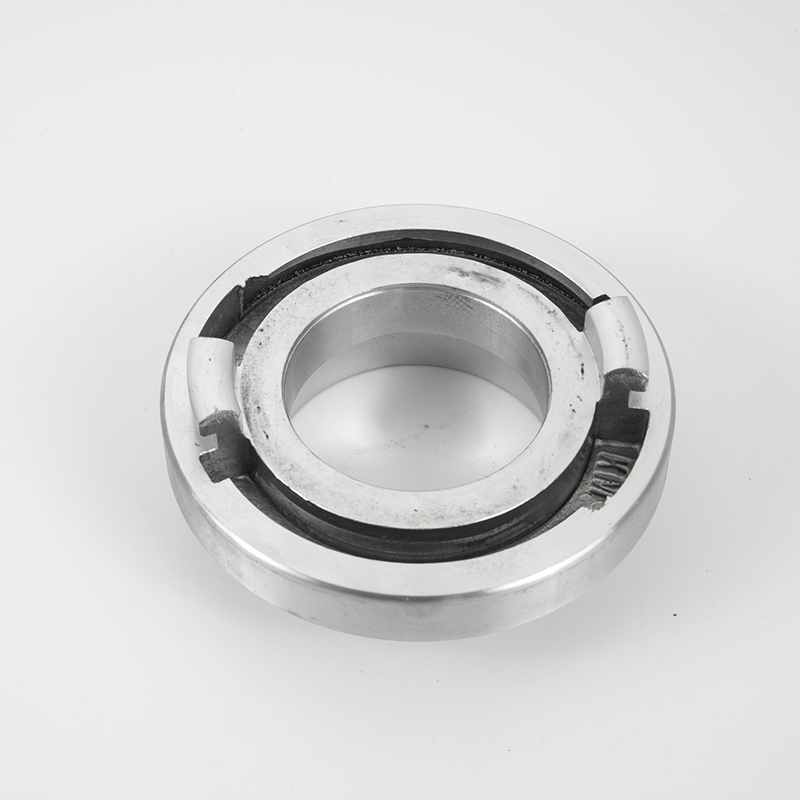Products
Zinc Alloy Die Casting
As the professional manufacturer, we would like to provide you Zinc Alloy Die Casting. And we will offer you the best after-sale service and timely delivery.Zinc alloy die casting is a manufacturing process that involves the production of complex metal parts by creating molds made of steel and injecting a molten alloy mixture of zinc, aluminum, copper, and magnesium into the mold cavities. The zinc alloy is heated to a specific temperature, then injected under high pressure into the mold cavities, where it cools and solidifies to form the desired part.
Send Inquiry
Product Description
What is Zinc Alloy Die Casting?
Zinc alloy die casting is a manufacturing process that involves the production of metal parts by injecting a molten alloy of zinc and other elements into a die or mold. The zinc alloy is heated to its melting point and then injected, under high pressure, into a mold cavity, where it cools and solidifies to form the desired part.
The process involves several critical steps, including:
Melting the alloy - The zinc alloy is melted in a furnace and then pumped into a holding chamber.
Injection - The molten alloy is injected into the die cavity, which is made of two parts: the cover half and the ejector half.
Cooling - The molten alloy cools and solidifies within the die cavity.
Ejection - The part is ejected from the mold, and any excess material is trimmed away.
Zinc alloy die casting is an excellent process for producing high-quality, precision parts that require strength and durability. It's used in industries such as automotive, electronics, and consumer goods, where the parts might be exposed to considerable stress and strain. Zinc alloy die casting has become popular due to its versatility, cost-effectiveness, and ability to produce intricate designs with quality surface finishes.
The process involves several critical steps, including:
Melting the alloy - The zinc alloy is melted in a furnace and then pumped into a holding chamber.
Injection - The molten alloy is injected into the die cavity, which is made of two parts: the cover half and the ejector half.
Cooling - The molten alloy cools and solidifies within the die cavity.
Ejection - The part is ejected from the mold, and any excess material is trimmed away.
Zinc alloy die casting is an excellent process for producing high-quality, precision parts that require strength and durability. It's used in industries such as automotive, electronics, and consumer goods, where the parts might be exposed to considerable stress and strain. Zinc alloy die casting has become popular due to its versatility, cost-effectiveness, and ability to produce intricate designs with quality surface finishes.
Why is it Called Zinc Alloy Die Casting?
The term "zinc alloy die casting" refers to a process used to produce metal parts by injecting molten zinc alloy into a mold or die under high pressure. The word "die" refers to a mold or impression in which the molten material is shaped.
The process of die casting has been used for a long time to manufacture metal parts, including those made from zinc. Zinc is a useful material for die casting because of its high fluidity and excellent castability properties. It can be easily melted, cast, and machined, and it also has excellent corrosion resistance.
The term "zinc alloy" refers to a mixture of zinc with other metals, such as aluminum, magnesium, and copper. These alloys can be tailored to provide specific properties, such as increased strength, durability, or corrosion resistance. Zinc alloys are also low-cost, which makes them an excellent choice for mass production.
So, the term "zinc alloy die casting" represents the process of producing metal parts by injecting molten zinc alloy into a die or mold under high pressure to achieve complex shapes and precision tolerances.
The process of die casting has been used for a long time to manufacture metal parts, including those made from zinc. Zinc is a useful material for die casting because of its high fluidity and excellent castability properties. It can be easily melted, cast, and machined, and it also has excellent corrosion resistance.
The term "zinc alloy" refers to a mixture of zinc with other metals, such as aluminum, magnesium, and copper. These alloys can be tailored to provide specific properties, such as increased strength, durability, or corrosion resistance. Zinc alloys are also low-cost, which makes them an excellent choice for mass production.
So, the term "zinc alloy die casting" represents the process of producing metal parts by injecting molten zinc alloy into a die or mold under high pressure to achieve complex shapes and precision tolerances.
What is the Zinc Alloy Die Casting Process?
The zinc alloy die casting process involves several steps:
Designing the Mold: A die or mold is designed that will give the final shape and geometry to the part according to the desired specifications. The mold is typically made of steel and consists of two halves that come together to form the cavity in which the zinc alloy will be injected.
Melting the Zinc Alloy: The zinc alloy is heated to a specific temperature to liquefy it, and the temperature is maintained throughout the process to ensure consistency.
Injecting the Zinc Alloy: The molten zinc alloy is then injected into the cavity formed by the two halves of the mold or die under high pressure, filling all the intricate details of the mold.
Cooling the Zinc Alloy Part: The molten metal cools and solidifies within the die cavity. The cooling rate can be controlled to achieve the desired material properties.
Ejecting and Trimming: Once the part has cooled, the die halves are opened to eject the part from the mold. Any excess material or flash is trimmed away.
Finishing: The part may undergo additional processing, such as polishing, plating, or painting, to achieve the desired final finish.
The zinc alloy die casting process produces high accuracy and excellent quality parts with high production rates. It is mainly used in the manufacturing industry for producing small to medium-sized parts in large quantities at a relatively low per-unit cost.
Designing the Mold: A die or mold is designed that will give the final shape and geometry to the part according to the desired specifications. The mold is typically made of steel and consists of two halves that come together to form the cavity in which the zinc alloy will be injected.
Melting the Zinc Alloy: The zinc alloy is heated to a specific temperature to liquefy it, and the temperature is maintained throughout the process to ensure consistency.
Injecting the Zinc Alloy: The molten zinc alloy is then injected into the cavity formed by the two halves of the mold or die under high pressure, filling all the intricate details of the mold.
Cooling the Zinc Alloy Part: The molten metal cools and solidifies within the die cavity. The cooling rate can be controlled to achieve the desired material properties.
Ejecting and Trimming: Once the part has cooled, the die halves are opened to eject the part from the mold. Any excess material or flash is trimmed away.
Finishing: The part may undergo additional processing, such as polishing, plating, or painting, to achieve the desired final finish.
The zinc alloy die casting process produces high accuracy and excellent quality parts with high production rates. It is mainly used in the manufacturing industry for producing small to medium-sized parts in large quantities at a relatively low per-unit cost.
What Materials can be Zinc Alloy Die Casting?
The zinc alloy die casting process can be used to produce a wide range of metal parts, including those made from the following materials:
Zinc: Zinc alloy die casting is the most common type of die casting and is used to produce parts made solely from zinc or zinc-based alloys.
Aluminum: Aluminum die casting involves the use of aluminum alloys, which are lightweight and have excellent strength-to-weight ratios.
Copper: Copper die casting is used to produce complex parts with high conductivity, making them ideal for electrical and electronic applications.
Magnesium: Magnesium die casting is used to produce parts that require high strength and low weight, such as automotive components.
Brass: Brass die casting is used to produce parts that require a high degree of precision, such as components for plumbing, locks, and keys.
Zinc alloy die casting is a versatile process that can work with various types of metals, alloys, and composite materials, depending on the product's specifications and requirements. Zinc alloys are particularly popular due to their excellent casting properties and versatility. They can be easily alloyed with other metals like aluminum, copper, and magnesium to produce components with specific material properties.
Zinc: Zinc alloy die casting is the most common type of die casting and is used to produce parts made solely from zinc or zinc-based alloys.
Aluminum: Aluminum die casting involves the use of aluminum alloys, which are lightweight and have excellent strength-to-weight ratios.
Copper: Copper die casting is used to produce complex parts with high conductivity, making them ideal for electrical and electronic applications.
Magnesium: Magnesium die casting is used to produce parts that require high strength and low weight, such as automotive components.
Brass: Brass die casting is used to produce parts that require a high degree of precision, such as components for plumbing, locks, and keys.
Zinc alloy die casting is a versatile process that can work with various types of metals, alloys, and composite materials, depending on the product's specifications and requirements. Zinc alloys are particularly popular due to their excellent casting properties and versatility. They can be easily alloyed with other metals like aluminum, copper, and magnesium to produce components with specific material properties.
What is Zinc Alloy Die Casting Used For?
Zinc alloy die casting is a versatile manufacturing process that can produce high-quality, precision parts with excellent properties such as strength, durability, and corrosion resistance. This process is commonly used in many industries, such as automotive, electronics, consumer goods, medical, aerospace, and industrial parts manufacturing.
In the automotive industry, zinc alloy die casting can be used to produce engine components, fuel system components, and door handle mechanisms. In the electronics industry, it is used to create motors, switches, connectors, and computer components. Consumer goods such as hardware components, locks, furniture, toys, and cameras can also be produced using zinc alloy die casting techniques.
The medical industry uses zinc alloy die casting to create biocompatible medical instruments and equipment that can withstand harsh conditions. The aerospace industry also uses zinc alloy die casting to produce parts that meet strict airworthiness requirements for civilian and military aircraft.
Overall, zinc alloy die casting is an essential manufacturing process that is widely used in various applications requiring parts that are durable, reliable, and precise. It is ideal for high-volume production runs and can produce intricate parts with high strength and accurate dimensional tolerances.
In the automotive industry, zinc alloy die casting can be used to produce engine components, fuel system components, and door handle mechanisms. In the electronics industry, it is used to create motors, switches, connectors, and computer components. Consumer goods such as hardware components, locks, furniture, toys, and cameras can also be produced using zinc alloy die casting techniques.
The medical industry uses zinc alloy die casting to create biocompatible medical instruments and equipment that can withstand harsh conditions. The aerospace industry also uses zinc alloy die casting to produce parts that meet strict airworthiness requirements for civilian and military aircraft.
Overall, zinc alloy die casting is an essential manufacturing process that is widely used in various applications requiring parts that are durable, reliable, and precise. It is ideal for high-volume production runs and can produce intricate parts with high strength and accurate dimensional tolerances.
What are the benefits of Zinc Alloy Die Casting?
Zinc alloy die casting has numerous advantages over other manufacturing processes, making it an increasingly popular choice for producing high-quality, precision parts. Here are some of the benefits of zinc alloy die casting:
High Precision - Zinc alloy die casting offers excellent dimensional accuracy and tight tolerances, making it perfect for creating intricate, complex parts with high precision.
Excellent Strength - Zinc alloys are known for their high strength-to-weight ratios, making them a great material choice for parts that require strength, durability, and resistance to wear and tear.
Versatile - Zinc alloys can be combined with other materials to create custom alloys with specific properties tailored to meet unique requirements.
High-Speed Production - Zinc alloy die casting is a high-speed manufacturing process that can produce large quantities of parts quickly and efficiently.
Improved Surface Finish - Zinc alloy die casting produces parts with smooth surface finishes, which can be easily polished or plated to improve appearance and functionality.
Corrosion Resistance - Zinc alloys have excellent corrosion resistance properties, making them ideal for use in harsh environments.
Environmentally Friendly - Zinc is a recyclable and eco-friendly material that can be reused without losing properties, making it a sustainable choice for manufacturing.
Overall, the benefits of zinc alloy die casting make it a popular choice for parts manufacturing in several industries, including automotive, electronics, medical, consumer goods, and aerospace.
High Precision - Zinc alloy die casting offers excellent dimensional accuracy and tight tolerances, making it perfect for creating intricate, complex parts with high precision.
Excellent Strength - Zinc alloys are known for their high strength-to-weight ratios, making them a great material choice for parts that require strength, durability, and resistance to wear and tear.
Versatile - Zinc alloys can be combined with other materials to create custom alloys with specific properties tailored to meet unique requirements.
High-Speed Production - Zinc alloy die casting is a high-speed manufacturing process that can produce large quantities of parts quickly and efficiently.
Improved Surface Finish - Zinc alloy die casting produces parts with smooth surface finishes, which can be easily polished or plated to improve appearance and functionality.
Corrosion Resistance - Zinc alloys have excellent corrosion resistance properties, making them ideal for use in harsh environments.
Environmentally Friendly - Zinc is a recyclable and eco-friendly material that can be reused without losing properties, making it a sustainable choice for manufacturing.
Overall, the benefits of zinc alloy die casting make it a popular choice for parts manufacturing in several industries, including automotive, electronics, medical, consumer goods, and aerospace.
Product details



Hot Tags: Zinc Alloy Die Casting, China, Manufacturer, Supplier, Factory, Customized, Made in China
Related Category
Investment Casting
Shell Mold Sand Casting
Lost Foam Casting
Water Glass Casting
Lost Wax Casting
Die Casting
Precision Machining
CNC Machining
Turning Machining
Machining Workshop
Send Inquiry
Please Feel free to give your inquiry in the form below. We will reply you in 24 hours.
